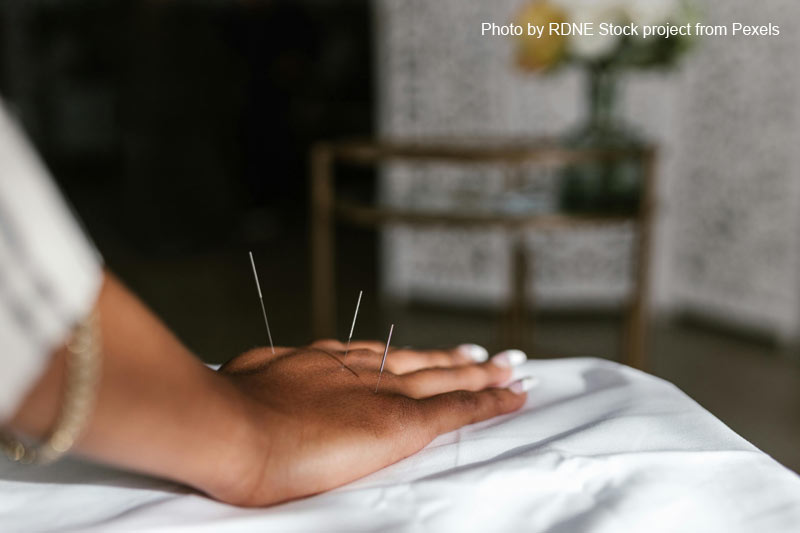
Acupuncture is an ancient healing practice that has been in use for over two and a half millennia. It originated from traditional Asian medicine and involves the insertion of fine needles into specific points on the body to balance the flow of energy, or Qi, within the body.
While acupuncture has been popular for centuries, modern science has also recognized its numerous health benefits. The efficacy of acupuncture in treating or alleviating the symptoms of numerous health conditions has been documented across thousands of modern medical studies. In this article, we will delve deeper into the lesser-known advantages of acupuncture, ranging from chronic pain management to enhanced cognitive function and much more. We will also explore the long-term benefits of acupuncture, giving you a comprehensive understanding of this holistic treatment.
Since acupuncture is vastly different from many other modes of Western medicine, people commonly question how it works. There are several manners in which acupuncture works when it comes to the physical body. First, acupuncture stimulates the neuroendocrine system, which triggers the release of chemicals in the muscles, spinal cord, and brain. It is a minimally invasive way to stimulate the skin, which has many nerves, to influence tissues, glands, organs, and various functions of the body.
These chemicals released either alter the experience of pain or release other chemicals that influence the body’s self-regulating systems. This biochemical change stimulates the body’s natural healing abilities and promotes physical and emotional well-being. Essentially, each acupuncture needle creates a tiny injury at the insertion site, which signals the body to respond by stimulating the immune system, promoting greater circulation, wound healing, and pain modulation.
Acupuncture is widely recognized for its effectiveness in managing chronic pain, especially for lower back pain, neck pain, and osteoarthritis. The World Health Organization (WHO) endorses acupuncture as a treatment for over 50 medical conditions, including various types of chronic pain. The process involves the insertion of fine needles into specific points on the body, stimulating the body’s natural painkillers and increasing blood flow.
Apart from pain management, acupuncture has shown promising results in improving cognitive health by stimulating neural activity and promoting overall brain health. It can also play a significant role in the treatment of neurological disorders such as Parkinson’s disease and multiple sclerosis. Additionally, acupuncture has been linked to reduced symptoms of depression and anxiety, supporting mental clarity and reducing stress by promoting relaxation.
Acupuncture can also enhance the immune response, making it a valuable tool in illness recovery. It can improve recovery following cancer treatments by enhancing immunity and speeding up healing. Moreover, acupuncture can be beneficial in managing autoimmune diseases, such as fibromyalgia and multiple sclerosis, by modulating the immune system. It also plays a role in respiratory health by enhancing the immune response to respiratory conditions like asthma and chronic obstructive pulmonary disease (COPD), relieving symptoms, and improving respiratory function.
Furthermore, acupuncture has been linked to improved digestion and relief from gastrointestinal issues. It can also alleviate headaches, migraines, and insomnia, among other conditions. Overall, acupuncture is a safe and effective treatment option for various health issues, and its benefits extend beyond the specific conditions it treats.
As you can see, acupuncture can provide a wide range of physiological benefits. Those contemplating acupuncture should have some idea as to what to expect at an appointment. Most acupuncture sessions last between 15 and 90 minutes depending on your conditions, and some of the time will be spent discussing your health concerns with the practitioner. Depending on your unique concerns and physical needs, the practitioner will determine the best way to proceed with treatment.
Once inserted, the needles can cause dopamine to be released by your brain, which can help you relax during the treatment. Some patients actually prefer a longer treatment time to extend the effects of relaxation. Despite this, it’s important to remember that everyone responds to acupuncture differently, so while some feel relaxed afterward, others may get energized and revitalized. Additionally, some patients may realize an immediate effect after the first treatment, while others may not notice a difference until after several treatments.
Acupuncture treatments can help you alleviate symptoms of many conditions. However, acupuncture should only be administered by a licensed acupuncturist. These professionals are required to pass the state board exam or National Certification Commission for Acupuncture and Oriental Medicine (NCCAOM) examination in the foundations of East Asian medicine, acupuncture, herbs, and biomedicine. To learn more about how acupuncture can help your body perform optimally, contact MK Integrative Wellness today!
